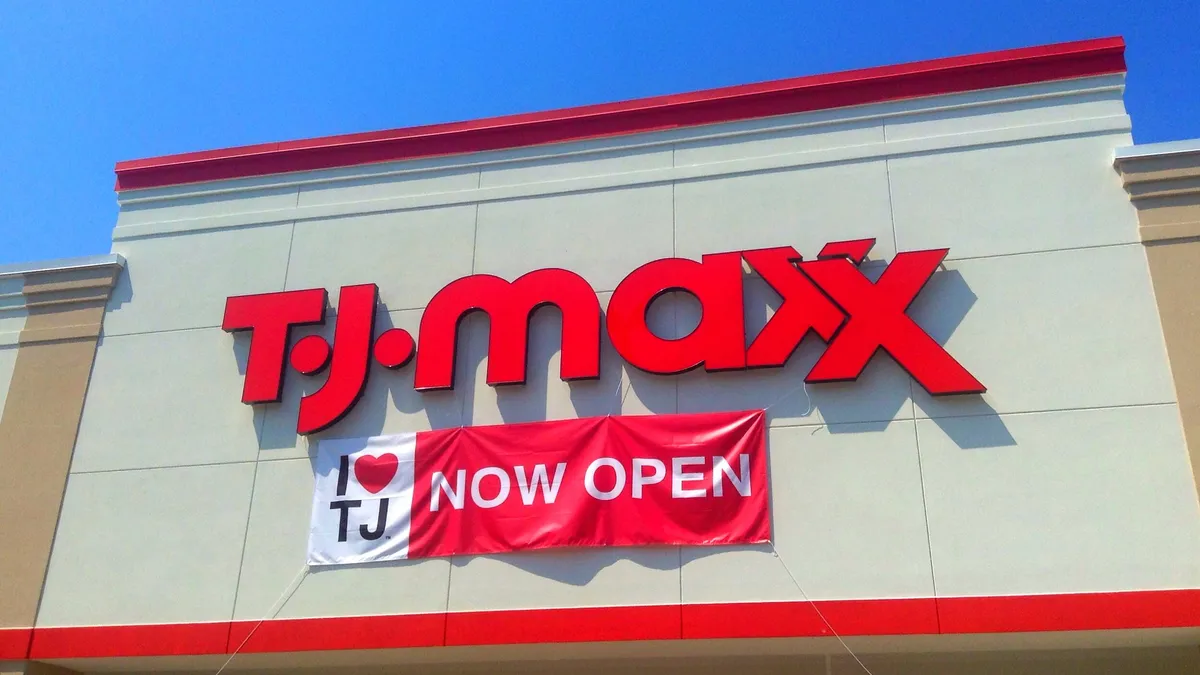Dive Brief:
- TJX is ready to “take advantage of the outstanding buying environment” as the off-price retailer’s inventory levels recede from last year, CFO John Klinger told analysts on a conference call Wednesday.
- The company’s total inventory fell more than 8% YoY in Q1, according to the discounter’s latest earnings. The fall was due to a decline in in-transit inventory compared to a year ago, when delays still held up supply chains.
- “We feel great about our balance sheet and store inventory levels,” Klinger said. The executive added that the retailer expects “better buying” to benefit the retailer’s margins in the coming quarter, while falling freight expense will increase margins for the full fiscal year.
Dive Insight:
While other retailers have been trying to unload unwanted inventory like hot potatoes, TJX has been there with hot mitts to catch the excess. What others can’t sell at full price, the retailer — which owns the T.J. Maxx, Marshalls and Home Goods banners — can sell at off-price to consumers struggling with inflation.
“Over the last year, our more than 1,200 global buyers have sourced merchandise from a universe of approximately 21,000 vendors, including many new ones,” CEO Ernie Herrman said on Wednesday’s call.
The TJX chief said the company’s flexible buying strategy “allows us to seek out the best opportunities and hottest trends in the marketplace.”
Herrman described a self-reinforcing cycle where the retailer’s attraction to consumers across multiple demographics allow it buy a range of merchandise from brands and suppliers, which then helps the retailer maintain its appeal to customers across income brackets.
“Many vendors want to work with TJX due to our size, scale and buying power,” Hermann said. “As a growing global retailer with nearly 5,000 stores, we offer vendors a very attractive way to grow their business and clear their excess inventory quickly and discretely.”
Hermann also addressed the possibility that, as more retailers work to clean up their inventory positions, there may be less high-quality inventory for TJX when the process plays out.
“So, that has been said for years and years and years — decades,” Herrman said. “One vendor, one year could have less. But most of them are public companies that certainly and rightfully still need to grow their earnings and show growth.”
He went on to note the sheer volume of vendors TJX works with, and that often when one vendor buckles down and cleans up their inventory, another in a similar category “just happens to have more at that time.”
As consumer wallets tighten, GlobalData Managing Director Neil Saunders said in a note that TJX’s advantages in the market include “great skills in buying which means it has relevant assortments that include a lot of compelling and ‘must-have’ products.”















